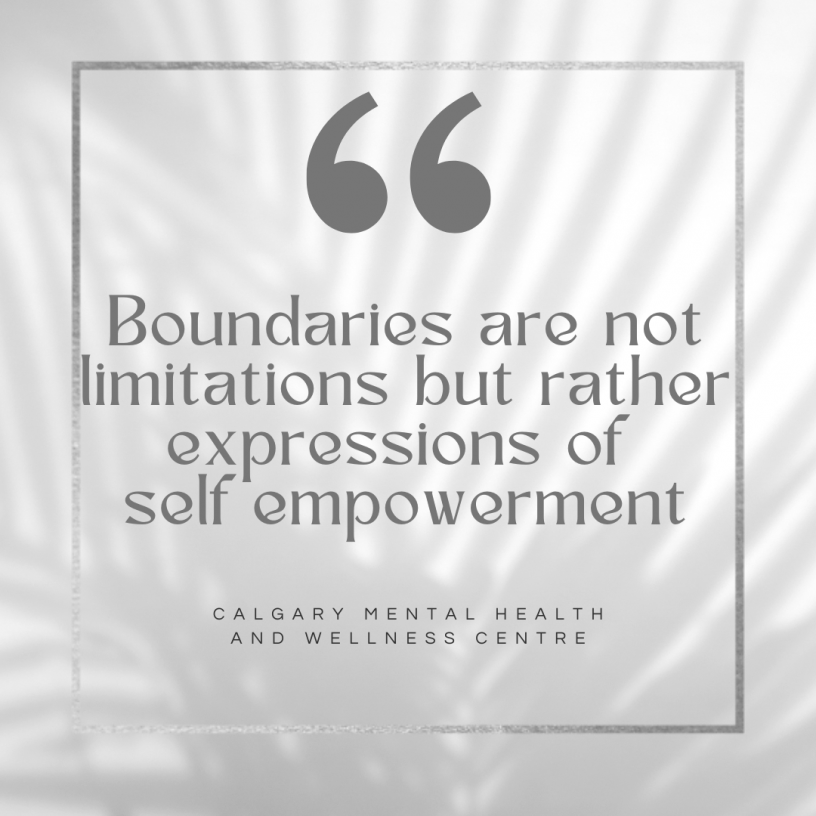Setting boundaries is an essential part of self-care and maintaining good mental health. Boundaries define the limits of acceptable behavior in our relationships, both personal and professional, and help protect our physical, emotional, and psychological well-being.
Why do boundaries matter?
Boundaries protect your emotional health by allowing you to prioritize your needs and feelings, preventing others from infringing upon your emotional well-being. They promote mutual respect and understanding in relationships, fostering healthier and more fulfilling connections with others.
Additionally, boundaries prevent overcommitment and burnout by establishing limits on your time, energy, and resources. By setting boundaries, you can maintain a healthy balance between your personal and professional life and avoid feeling overwhelmed.
Asserting your boundaries reinforces your sense of self-worth and empowers you to advocate for your needs and values. It communicates to others that you deserve to be treated with dignity and respect, boosting your confidence and self-esteem.
Practical Tips for Setting Boundaries
- Identify Your Limits: Take some time to reflect on your needs, values, and priorities. What behaviors or situations make you feel uncomfortable or stressed? Use this self-awareness to clarify your boundaries and what you’re willing to tolerate in your relationships.
- Communicate Clearly: Express your boundaries directly and respectfully to others. Use “I” statements to assert your needs and feelings without blaming or criticizing them. Be firm and consistent in enforcing your boundaries, even if it feels uncomfortable at first.
- Learn to Say No: Don’t feel obligated to say yes to every request or demand that comes your way. Practice saying no gracefully and without guilt when a situation doesn’t align with your boundaries or priorities. Remember, saying no to others means saying yes to yourself and your well-being/
- Regularly Check-In With Yourself: Periodically reassess your boundaries and make adjustments as needed. Your boundaries may evolve over time as your circumstances and relationships change, so stay attuned to your needs and be willing to adapt accordingly.
Setting boundaries is not selfish; it’s an act of self-care and self-respect. By establishing clear limits in your relationships and honoring your own needs, you create a healthier and more balanced environment for yourself and those around you. Remember that setting boundaries is a skill that requires practice and patience, but the benefits for your mental health and well-being are well worth the effort.
We hope you found this blog helpful and insightful. For more on mental health and wellness, connect with us at the Calgary Mental Health & Wellness Centre. – Tiffany Warren, Founder







